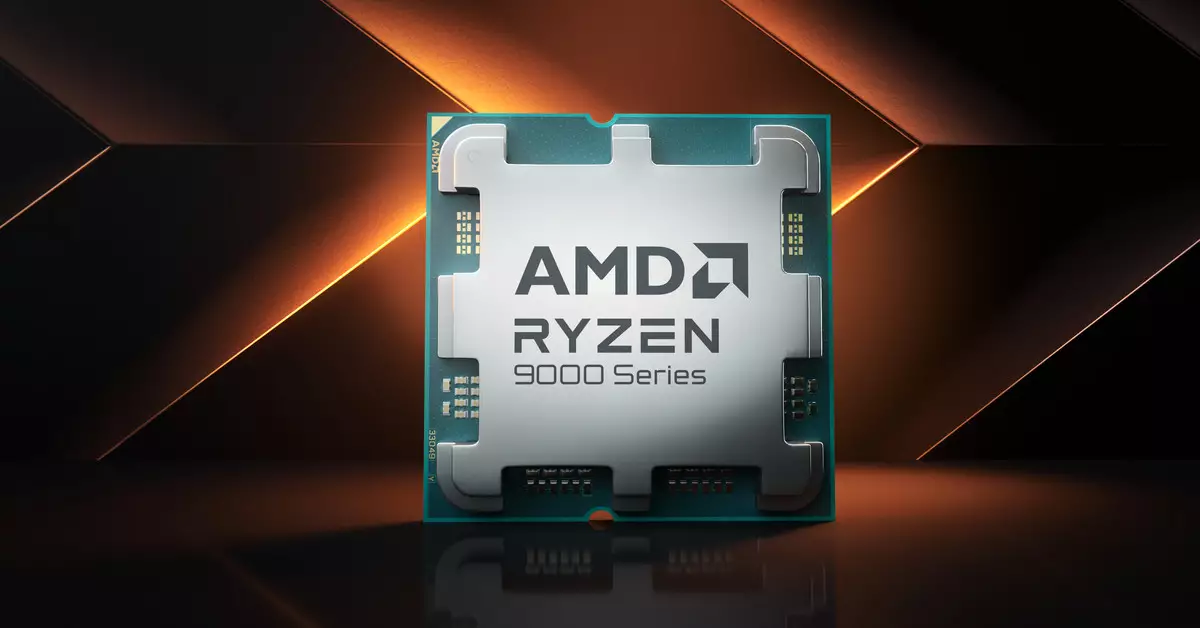In the fast-paced landscape of computer hardware, AMD has once again found itself in the spotlight with the half-hearted reveal of its upcoming Ryzen 9000X3D desktop processors. While this news might raise eyebrows among enthusiasts, a closer look into the details suggests that significant advancements may not be on the horizon, echoing concerns from the previous Ryzen 9000 series.
The Context of Performance Improvements
Traditionally, each new generation of processors promises notable advancements in performance, efficiency, and capabilities. For AMD, however, the new Ryzen 9000X3D processors seem to tread a familiar ground as they are revealed to provide only modest gains in certain applications. According to preliminary data shared by MSI, a standout eight-core variant of the 9000X3D shows performance boosts in multicore tasks, with a notable 28% lead over the Ryzen 7 7900X3D in tests such as Cinebench R23. But, before getting overly excited, potential buyers must temper their expectations, as these figures don’t translate into major improvements across all scenarios.
Gamers, often eager for the latest in CPU technology, might find the revelations particularly disappointing. The MSI testing indicates that in popular titles like Black Myth: Wukong and Shadow of the Tomb Raider, the performance of the Ryzen 9000X3D chips is virtually indistinguishable from the already-existing Ryzen 9000 series. The maximum improvement weight just around 2%. This suggests that, while the architecture may be incrementally refined, the real-world gains might not justify an upgrade for users already equipped with a Ryzen 9000 processor.
Further complicating the narrative around the Ryzen 9000X3D is the peculiar nature of its reveal. The emergence of these details through a seemingly ancillary presentation on Intel’s Core Ultra 200S chips raises questions about the operational integrity of AMD’s release strategy. Did HardwareLuxx inadvertently breach a confidentiality agreement? Or does the responsibility lie with MSI for their inclusion of unreleased AMD components within a primarily Intel-focused showcase?
The ambiguity casts a shadow not just on AMD but also on MSI, putting both firms in a precarious position as the release date approaches. For consumers and tech enthusiasts alike, a gap in communication only dilutes interest, making it harder to gauge what the actual performance improvements will be when the chips eventually hit the market.
As the release of the Ryzen 9000X3D processors looms, it becomes crucial for consumers to remain prudent. With modest relative gains in both multicore processing and gaming performance, the anticipated improvements may feel lackluster against a backdrop of industry expectations. AMD has established itself as a formidable player in the CPU market, and while the 9000X3D series displays some advancements, the overall outlook compels users to think long and hard about whether an upgrade is truly warranted, underscoring a broader narrative of cautious optimism in the tech ecosystem.

